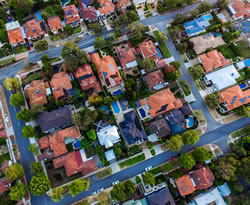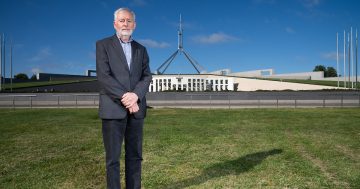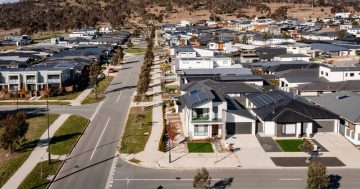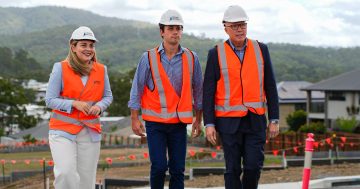Matt Johnson* says leading economists are tipping Australia’s sky-high property prices will fall as household debt stymies recovery from the pandemic.
 Property prices are still heading up, but rising unemployment could trigger a flood of mortgage defaults, economists are warning.
Property prices are still heading up, but rising unemployment could trigger a flood of mortgage defaults, economists are warning.
Banks and governments will instead need to intervene to prevent a spike in defaults and cheaper sales prices.
That concerning outlook coincided with CoreLogic’s April Home Value Index, which found housing price growth slowed to a rate of 0.3 per cent over the month, compared to March’s growth rate of 0.7 per cent.
Melbourne bucked the national trend by posting a 0.3 per cent fall, and Hobart followed suit with a 0.1 per cent drop.
CoreLogic head of research, Tim Lawless said the nation-leading Sydney and Melbourne markets will soon navigate choppy waters due to their “large exposure to overseas migration as a source of housing demand” and “stretched housing affordability”.
The latest property figures are yet to reflect the economic consensus of widespread pricing falls, including one forecast predicting a worst-case “tsunami” scenario that could slash 30 per cent off the market.
AMP Capital chief economist, Dr Shane Oliver wrote that Australia’s most likely outcome if coronavirus restrictions are gradually eased this month is a 10 per cent overall fall.
And Dr Oliver told The New Daily the nation’s high household debt to income ratio has been Australia’s Achilles heel.
He said stimulus including JobKeeper wage subsidies and six-month mortgage holidays ensured the property market’s “relatively modest” bleeding, as homeowners sit on their properties.
But with unemployment rates expected to break out of containment (Australia will likely enter double-digit territory), there could be a rise in mortgagee-in-possession sales from September.
“Higher unemployment poses the single biggest risk to the property market, simply to the extent that you have a significant portion of relatively high-geared, highly indebted Australian households,” Dr Oliver said.
“If they can’t make their payments and we fall outside of the six-month bank payment holiday and they will start defaulting on their loans, which will lead to forced selling of properties and falling house prices.”
BIS Oxford Economics chief economist, Dr Sarah Hunter said the extent of a housing price fall — and rise in forced sales — is largely contingent on how Australia recovers from the public health crisis.
She also noted the job losses have disproportionately impacted sectors with lower rates of home ownership, including retail, tourism and hospitality.
With Prime Minister, Scott Morrison signalling national coronavirus restrictions could be relaxed further, Dr Hunter said Australia could expect fewer forced sales than what’s being widely tipped.
“Serviceability [of mortgages] is certainly a challenge and a problem for some households, but there aren’t any signs yet in the system of widespread stress,” Dr Hunter told The New Daily.
“But at the end of the six-month period, if we do see a removal in support [from banks and government] and there’s nothing further announced, some people could well be forced to sell.”
“The likelihood of it being widespread when the economics are getting better and jobs are coming back and we are slowly making our way back to normal — that’s probably unlikely, but not impossible.”
Dr Oliver said a 10 per cent pricing slump would be manageable, considering the market made similar gains after its slump ended in June.
But that forecast would require both the Reserve Bank of Australia (RBA) and the Federal Government to announce further support packages for struggling homeowners if remnants of the shutdown last longer than six months.
“At the end of the day, the Government will probably have to extend the JobKeeper arrangements and the RBA would have to provide more assistance to banks, because if they don’t do that, we could have a wave of defaults causing a much bigger decline in house prices,” Dr Oliver said.
* Matt Johnson is a finance journalist for The New Daily and a sports photographer. He tweets at @matte_johnson.
This article first appeared at thenewdaily.com.au











